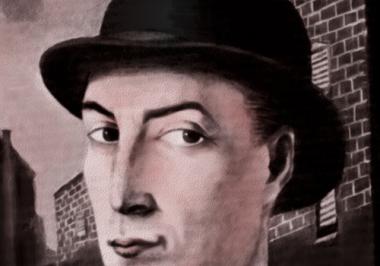Every season, Commonwealth Opera of Western Massachusetts stages an opera and a musical—the former because that's where their heart and history are, the latter for fun, variety and ticket sales. But this year the company's spring production, which plays this weekend in Northampton, is neither.
Despite its title, The Threepenny Opera isn't even a mini-opera. It's an almost unique piece of musical theater. A success de scandale when it premiered in Weimar Berlin in 1928, it upended the conventions of the musical stage, which at the time was occupied, on both sides of the Atlantic, with sentimental operettas and jaunty boy-meets-girl entertainments. And it made the careers of its young authors, Bertolt Brecht and Kurt Weill.
As Ron Luchsinger, the director of Commonwealth's production, put it after a recent rehearsal, "It's a great piece of world theater and music, which spawned a lot of other musicals—Cabaret in particular. It represents an entire era." The show, in Marc Blitzstein's brilliant English version, does indeed capture the freewheeling, anarchic spirit of Germany between the wars—and then goes further. Weill's score combines Jazz Age rhythms with Central European dissonance, and Brecht's left-wing politics give the script a kind of ironic socialism without the socialist faith in human nature.
Drawing on its model, The Beggar's Opera, a satire of fluffy Italian operas and 18th-century English society, Brecht's libretto is a trenchant parody of sappy operettas and 20th-century capitalism—a kind of anti-opera peopled with crooks, hypocrites and whores and overlaid with a jaw-dropping pessimism about the human condition. Its central character, Macheath, known as Mack the Knife (yep, that's where the song comes from), is a charming but utterly unscrupulous hoodlum with three women on the string: the virginal daughter of a con man who operates a Fagin-like ring of phony beggars; the sadder-but-wiser daughter of the crooked police chief; and a world-weary prostitute. The moral, if there is one, is the futility of morality in an amoral world:
What keeps a man alive?
He lives on others.
He likes to taste them first
then eat them whole if he can. …
Remember if you wish to stay alive:
for once do something bad,
and you'll survive.
It's an outlook that inhabits many of Brecht's plays: "The world is mean and man's a shit." But in Threepenny especially, it's presented with such ebullient good humor, and clothed in such catchy tunes, that you smile as you squirm.
Part of the enduring success of the show is its persistent timeliness. Take Macheath's self-justification of his criminal ways: "What's a jimmy in the hand compared to stocks and bonds in hand? What's robbing a bank compared to founding one?" Goldman Sachs, anyone?
This production almost didn't happen. Hobbled by the economic crisis that is squeezing so many arts organizations these days, the company didn't know if they'd be able to mount a spring production to match their successful staging of Puccini's Madame Butterfly last fall. As it is, a concert version of Rodgers and Hammerstein's Carousel planned for later this spring has been shelved.
This weekend's performances are possible through a combination of the show's small scale (only an eight-piece orchestra) and a cost-cutting concept. Rather than a fully staged production set in Dickensian London, this Threepenny Opera takes place in a 1940s radio studio where an on-air version is being broadcast. The approach not only saves on sets and costumes, it cuts down on rehearsal time, since the performers have their scripts in hand.
It's also in keeping with Brecht's approach to theater, which strives, in what he called the "alienation effect," to keep the audience at an emotional arm's length, thinking about the onstage drama instead of getting wrapped up in it. Brecht's characters break out of the action to deliver commentary on it, and his script calls for onstage placards announcing the song titles. The microphones and street clothes in Luchsinger's production aim for the same distancing effect.
Luchsinger told me he's been thinking about doing Threepenny ever since he staged another offbeat musical, Jacques Brel is Alive and Well and Living in Paris, for Commonwealth Opera a couple of years back. Two of the singers from that production, Sol Kim Bentley and Mary Jane Disco, are in this one. Other principals include Daniel Kamalic as Macheath, Thom Griffin, Brook Larimer, Julie M. Poole, John Salvi and Charles Berios as the "Mack the Knife"-singing Street Singer.
At a music rehearsal last weekend, the stylistic tension between grand opera and The Threepenny Opera was evident, as the cast of trained singers applied their perfect pitch and perfect vowels to a score that was written to be performed by Berlin cabaret singers. Some of the roles, however, are vocally demanding, particularly three of the women, and this creates a conundrum: What's the right compromise between the kind of polished formal singing Commonwealth Opera prides itself on, and the half-singing/half-speaking style called for by the Brecht/Weill score? Judging from the rehearsal I attended, the scale tips in favor of the former—quite appropriately in this case. After all, the company's name isn't Commonwealth Cabaret.
The Threepenny Opera: March 13-14 at 8 p.m., March 15 at 2 p.m., Academy of Music, 274 Main Street, Northampton, CABOtix.com or (413) 582-1332.



